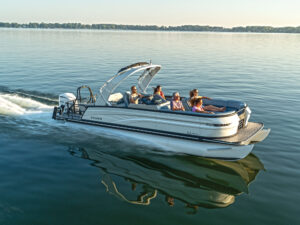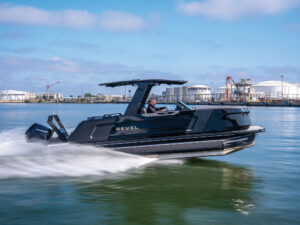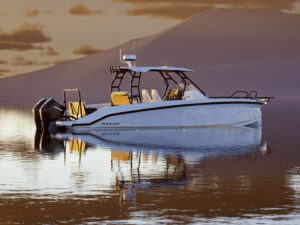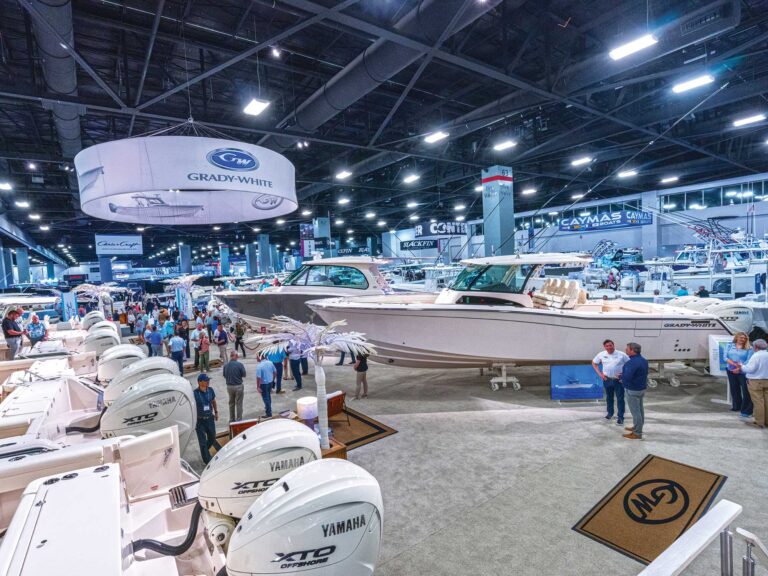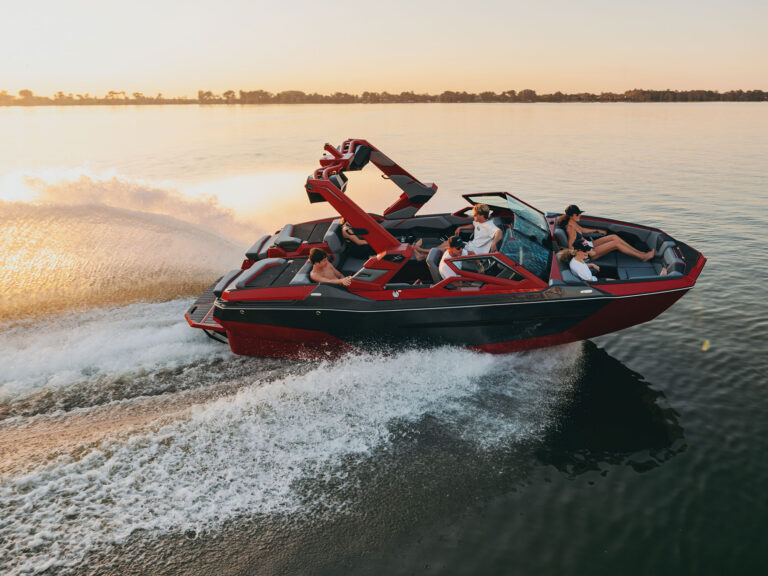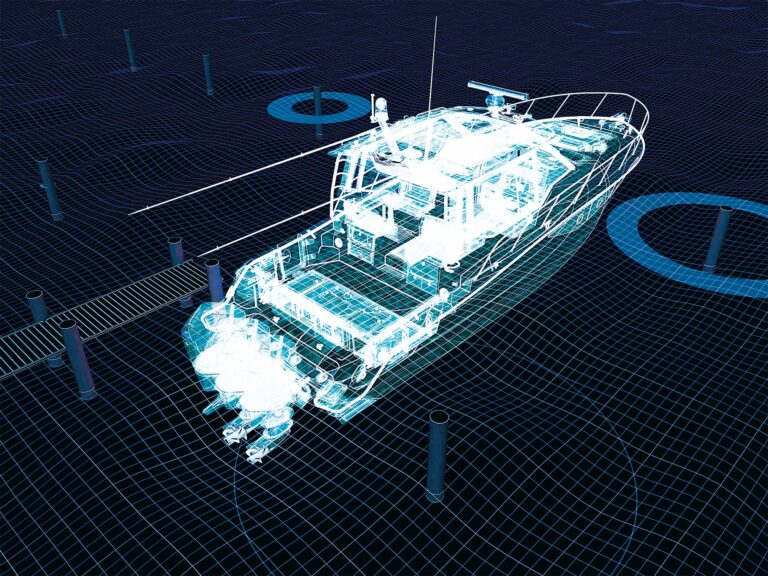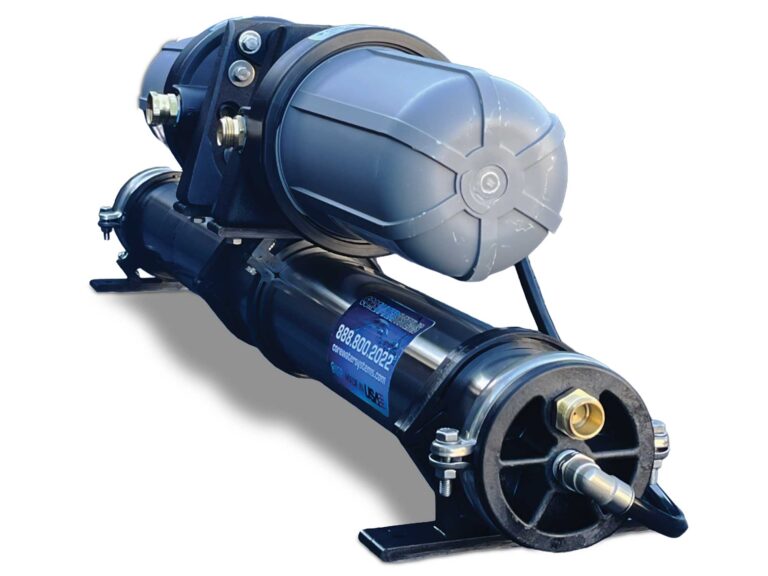
On October 26, 2023, a team of engineering students at Princeton University—Princeton Electric Speedboating—set a new world record of 114.20 mph for an electric-powered boat. The famed pro-outboard hydroplane Big Bird ran on Lake Townsend, outside Greensboro, North Carolina.
Princeton Electric Speedboating made one pass clocking 111 mph and another at 117 mph for 114.20 mph. At the helm was veteran racer John Peeters, of Arlington, Washington, who holds over 60 records in multiple boat classes.
This record is one known as a “kilo record” because it is run on a 1-kilometer course.
Princeton Electric Speedboating beat the old record of 88.61 mph set by team Jaguar Vector in 2018, with Peter Dredge, of Great Britain, another multiple world-record holder at the helm.
According to the Princeton University Engineering News, the record-breaking boat is outboard-powered and equipped with a three-phase, 200 hp electric motor designed by the Princeton team and built in coordination with Flux Marine of Rhode Island.

Big Bird will be familiar to racing fans as the vessel, built by legend Ed Karelsen, which won many races powered by gas engines. Big Bird was designed for an outboard up to 1,100 cc. Now, the canopied race boat features a permanent magnet AC motor weighing just 65 pounds. Power is from a 24 kWh 400-volt battery pack. It is said to produce in excess of 200 hp.
Princeton Electric Speedboating team captain Andrew Robbins, of Michigan, grew up around powerboats and boat racing, according to published reports. Big Bird was in storage nearby to his hometown.
Princeton Electric Speedboating is a student-run team made up of 44 undergraduate and graduate students, and represents most engineering disciplines as well as members studying economics and physics. The students conducted much of the engineering, design, and fabrication of the boat and of the engine that propelled it to the record-setting run.
Princeton Electric Speedboating was founded in 2020, according the Princeton Engineering News, when junior Nathan Yates read an open invitation for participants in the Promoting Electric Propulsion competition. Yates, a freestyle sprinter on the men’s swim team, said the requirements were simple. “The boat had to be all-electric and look like it wouldn’t be a health hazard,” he said in an interview.
Read Next: On Board With: Andrew Robbins
The electric speed record has been attempted several times in recent years as business, academia and the racing community have converged on this rapidly evolving segment of marine propulsion. Between Jaguar’s 88 mph run in 2018 and Princeton Electric Speedboating’s current 114 mph world record this past fall, other record attempts have been chased by electric-powered boats. Specifically, at the 2023 Lake of the Ozarks shootout, an S2 catamaran—piloted by noted racer, race rigger and boatbuilder Shaun Torrente, of Shaun Torrente Racing, powered by a Vision Marine Electric Outboard—was unofficially clocked at 116 mph. And Boating has reported on the University of Pittsburgh’s electric boat team, Pittsburgh Electric Propulsion, several times.
So, hail and congratulations to the record-breakers, Princeton Electric Speedboating. And kudos to all those chasing records and advancing the technology of marine propulsion.

